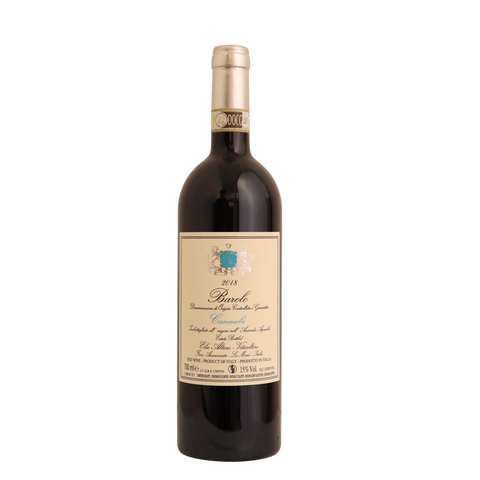
2019 Elio Altare "Cannubi" Barolo, Piedmont, Italy
Clear, bright ruby with garnet tones on rim. Very clear and inviting nose, smells of ripe raspberries, plums and rose petals with hint of cloves in the background. The palate offers a round and balanced focus with concentrated plump ripe fruit. It starts with a dense dry tannin, then fills out into a generous full bodied ripeness. In the final ascent, a firework of spices delights, and the long finish prolongs the huge appeal of this wine.
There are 2 units left in stock.
ABOUT THIS WINE
Maceration on the skins for approx. 4/5 days in rotary fermentors with temperature control , ageing in French barriques for 24 months.
ABOUT THIS PRODUCER
Grandfather Giuseppe Altare purchased the farm and winery in 1948, and the family practiced the typical Piemontese mixed agriculture up until the mid-1970s. Besides winegrapes, the family grew pears. apples, hazelnuts, wheat, and corn. 1971 was the last year in which they worked the land with oxen; after that they gradually acquired tractors and other farm machinery.
Those were not easy times, given the economic crisis that lasted for years. Elio, along with other friends, decided to learn about winemaking beyond the borders of Piemonte and try to grab some of the success that those regions were enjoying. Their first trip to Burgundy, in January 1976, was a revelation, and Elio began experimenting with methods outside of the traditional ones in Piemonte
After a brief period working with his father Giovanni, Elio, at the age of 26 years decided to change direction and to give a different interpretation to the family's wine, favouring elegance, finesse, and balance. He began a strict regimen in the vineyard and adopted new vinification techniques in the cantina in order to highlight the grape variety and the territory in which it was grown.
The winery at this point is a family operation, with the invaluable help of Elio's wife, Lucia, and daughters Silvia and Elena. Together, they continue Elio's tireless effort, experimentation, and research.
Today the family works 10 hectares, of which five are rented. They have adopted techniques aimed at respecting nature. The principle objective is that of limiting the use of chemical substances, both in the vineyard and in the cellar. The wines are not subjected to filtering or fining, so that they keep all of the material and character extracted during maceration.
